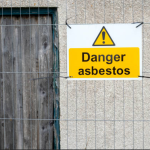What is Gastroshiza ?
Gastroshiza is a rare congenital disorder characterized by abnormal development of the abdominal wall, causing the intestines and possibly other organs to protrude from the newborn’s body. Unlike similar disorders, the hernia in Gastroshiza usually occurs through an opening near the navel and is not covered by a protective membrane. This unique condition requires specialized treatment and intervention immediately after birth.
Causes and Risk Factors of Gastroshiza
Genetic and Environmental Factors
The exact cause of Gastroshiza is still being studied, but both genetic predisposition and environmental factors are thought to play a role. Risk factors include:
- Young mother (especially under 20 years of age)
- Exposure to toxins such as tobacco, alcohol, and certain medications during pregnancy
- Prenatal malnutrition
- Most cases appear to occur sporadically without a clear genetic cause, but research is underway to identify genetic links.
Differences Between Gastroshiza and Similar Conditions
Gastroshiza and omphalocele are often confused. The key difference between Gastroshiza and omphalocele is that gastroptosis lacks a protective membrane surrounding the organs, while omphalocele produces a membranous hernia. This difference affects not only the surgical approach but also the prognosis and potential complications.
Symptoms and Diagnosis
Gastroshiza is almost always detected immediately after birth. The most characteristic symptom is a protrusion of abdominal organs through an opening near the navel, rather than directly above it. Exposed organs (usually loops of bowel) are particularly vulnerable to injury, dehydration, and infection.
Diagnostic Procedures
- Prenatal ultrasound: Most cases are currently detected during routine prenatal screening in the second trimester.
- Physical examination: The definitive diagnosis is made by healthcare professionals at birth.
Additional testing may be necessary to assess the extent of the hernia and the condition of the exposed organs.
Complications Associated with Gastroshiza
Early diagnosis is essential, as exposed bowel is susceptible to complications, such as:
- Dehydration (fluid loss)
- Infection (lack of a protective barrier)
- Intestinal dysfunction (which can lead to malabsorption and short bowel syndrome)
- Some babies may have additional congenital malformations, although these are less common in Gastroshiza than in omphalocele.
Gastroshiza Treatment
Immediate Postnatal Care
After birth, doctors will promptly perform the following procedures to protect exposed organs:
- Application of a sterile, moist dressing
- Use of a special plastic covering (ensilage) to minimize the risk of infection
- Prevention of heat and fluid loss
Surgery
The primary method for treating Gastroshiza is surgery. There are two main approaches, depending on the severity:
- Primary repair: If the hole and swelling are small, the organs are relocated to the abdomen in a single operation.
- Stage repair: If the defect is large, the organs are gradually relocated over several days using ensilage and then sutured.
Supportive care, including nutritional support and respiratory therapy, is critical throughout the recovery process.
Prognosis and Long-Term Outcomes
The prognosis for children born with gastroptosis has improved significantly thanks to modern medical technology. While most babies recover well and live healthy lives after surgery, some suffer long-term digestive problems. Continued follow-up is required to monitor growth, nutritional status, and potential complications.
Preventive Measures and Maternal Health
While Gastroshiza cannot always be prevented, pregnant women can reduce their risk by:
- Maintaining a healthy lifestyle through proper prenatal care.
- Abstaining from tobacco, alcohol, and over-the-counter medications.
- Receiving regular prenatal checkups and screening tests.
- Early detection through prenatal care leads to better outcomes and allows families to prepare for necessary postnatal interventions.
Resources and Family Support
While a diagnosis of Gastroshiza can be distressing, families can benefit from the support of a multidisciplinary team of specialists, including surgeons, neonatologists, nurses, and dietitians. Support and counseling services are also available to help families overcome difficulties and celebrate achievements following successful treatment.














